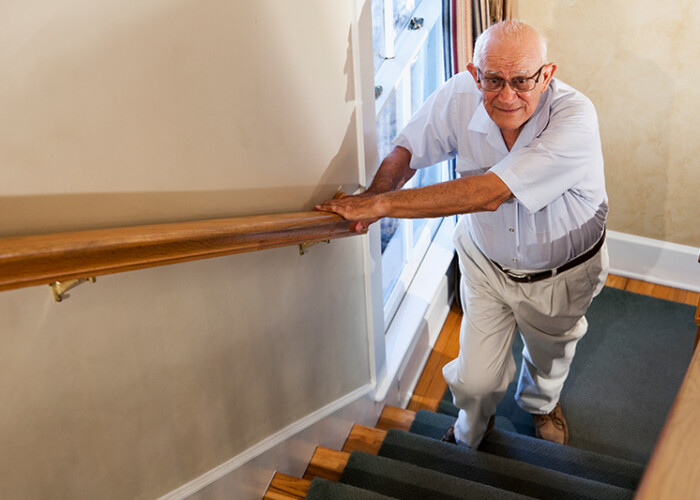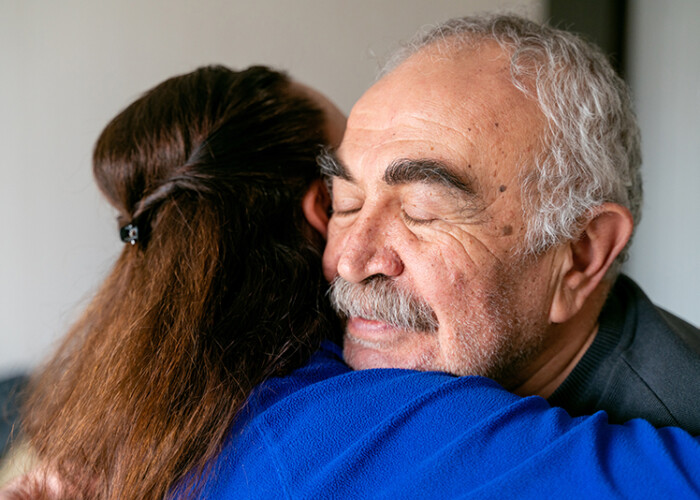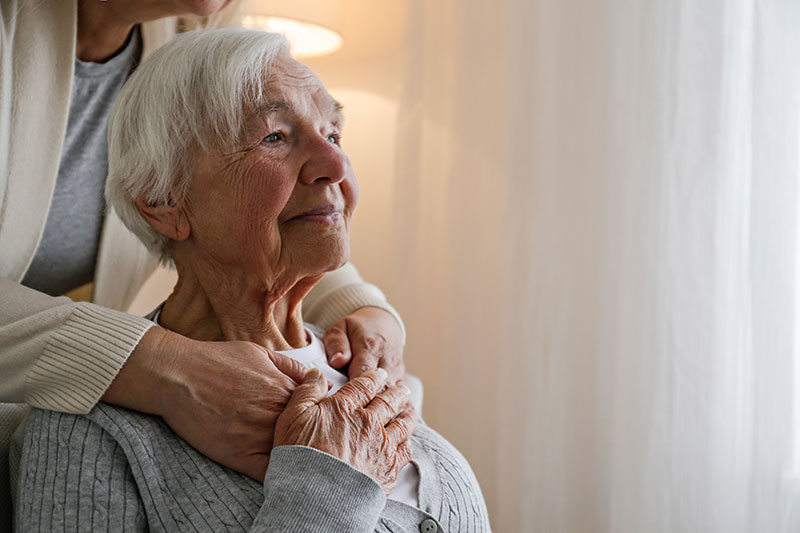Senior Health
Understanding Cultural Competence in the Context of LGBTQ+ Senior Care
The highest quality LGBTQ+ senior care begins with understanding and implementing cultural competence practices.
As we strive to create compassionate and supportive environments for seniors, the concept of cultural competence takes center stage, particularly when addressing the unique needs of LGBTQ+ individuals in their later years. In the context of LGBTQ+ senior care, embracing cultural competence is essential to ensure that each person receives the respect and understanding they deserve as they navigate the intricacies of aging.
What Is Cultural Competence?
At its core, cultural competence refers to the ability of individuals or organizations to effectively interact with people from different cultures. It involves understanding, respecting, and responding to the needs and preferences of individuals from diverse backgrounds. In the context of LGBTQ+ seniors, cultural competence extends beyond a general understanding of aging to encompass the unique challenges, … Read More »
Navigating the Unique Challenges of Older Adults in the LGBTQ+ Community
Older adults in the LGBTQ+ community face a number of hurdles that we all need to understand.
When it comes to growing older, the experiences of seniors are as diverse as the colors of the rainbow. Within this spectrum, older adults in the LGBTQ+ community often face unique challenges that warrant our attention and understanding. As a leading home care provider in Novato and the surrounding areas, we know that fostering inclusivity is crucial for providing support to all members of our community. It begins by understanding some of the hurdles specific to the LGBTQ+ population that need to be overcome.
Isolation and Social Stigma:
One of the key challenges confronting LGBTQ+ seniors is the potential for isolation and the enduring social stigma that has persisted throughout their lives. Many individuals from this community grew up in an … Read More »
Take These Steps to Avoid Overmedication and Adverse Medication Reactions in Seniors
Taking too much or too little of a medication or taking it the wrong way can lead to adverse medication reactions in seniors.
The days of “take two aspirin and call me in the morning” have morphed into “take two of these…and two of these…and maybe one of those, too!” Nearly forty percent of seniors are taking at least five different prescription medications each day – not to mention vitamins, supplements, and OTC meds. It is easy to understand why overmedication and adverse medication reactions in seniors are extremely common.
Take these actions to avoid medication problems for someone you love:
Make a list, and check it twice. Create a list of every one of the medications – both over-the-counter and prescription – that the person is currently taking. Share the list with all of their healthcare providers, and … Read More »
Watch for These Early Signs of Mobility Problems in Older Adults
All family caregivers need to know the early signs of mobility problems in older adults in order to prevent falls or other serious injuries.
Benjamin Franklin certainly had it right: An ounce of prevention is really worth a pound of cure. When it comes to noticing and addressing the early signs of mobility problems in older adults, prevention is a must. Falls in seniors lead to 3 million emergency room visits, 300,000 hip fractures, and 32,000 deaths every year, according to research by the CDC.
Preempt a tragedy by keeping an eye out for these warning signs of increasing mobility issues in older loved ones:
Experiencing dizziness. Dizziness and issues with balance can develop from a variety of contributing factors that ultimately cause problems with mobility. It’s important to discover why these issues are taking place and address them … Read More »
The Final Stage of Alzheimer’s: What to Expect
Being prepared for the final stage of Alzheimer’s is key to continuing to help make life as meaningful as possible for someone you love.
The journey through Alzheimer’s disease can be compared to navigating a winding road that spans years, riddled with intermittent stops, starts, unexpected twists, and a plethora of unknowns. As the dedicated caregiver for an individual grappling with dementia, having foresight about what to expect around the next bend is paramount. This knowledge empowers you to not only be well-prepared but also to administer the most fitting and compassionate level of care in the final stage of Alzheimer’s.
Alzheimer’s, being a highly individualized experience, manifests uniquely in each person. Yet there are certain commonalities at every stage of the disease. When an individual transitions into the last stage, discernible challenges emerge, including struggles with eating … Read More »
The Most Important Vitamins for Older Adults
With all of the options on store shelves, which are the most important vitamins for older adults?
Minerals, vitamins, and supplements – oh my! Nearly three in four older adults are taking them; but are they really needed as we get older? After all, a balanced and healthy diet offers older adults essential nutrients. But there are specific areas of deficiency that may make a case for the addition of a supplement. Make sure to talk with the doctor before making any changes, but with their recommendation or approval, consider the following important vitamins for older adults:
Calcium
Aging bones are susceptible to breaks and fractures when calcium intake is inadequate. This is especially true for post-menopausal women, with a full 50% of those over age 50 breaking a bone because of osteoporosis. However, men are also in … Read More »
Why Alzheimer’s Caregivers Say They Need to Go It Alone – And Why It’s a Bad Idea
“You can make it, but it’s easier if you don’t have to do it alone.” – Betty Ford
Alzheimer’s caregivers may feel as though they are the only ones who can provide the best care for an older loved one, but finding a care partner is vitally important.
As a family member caring for a loved one with dementia, you know firsthand how challenging it can be. It’s definitely never a role that Alzheimer’s caregivers should try to fill on their own. Yet, many caregivers struggle with seeking the support they need, intensifying stress and leaving minimal room for self-care, a vital aspect for those in caregiving roles.
See if you can relate to these top reasons given by family caregivers for attempting to provide care solo, and why they need to be reconsidered:
Dad would not want another … Read More »
3 Steps to Better Advocate for an Aging Parent
Trusting someone you love to the care of someone else is never easy, particularly for a senior family member. Whether at home or in a facility, you’ll have questions you need answered. You will also want to be ready to advocate for an aging parent to proactively address any potential problems and also to quickly take care of issues that do take place.
For instance, review the following common situations and how to most effectively advocate should they arise with an older adult you love:
The person has dementia. A loved one with Alzheimer’s might not be able to effectively communicate their wishes and needs. As an example, a new caregiver may not realize that Dad wears inserts in his shoes and she may put his shoes on each day without them. Dad may not know how to communicate this … Read More »
Reminiscing in Dementia: How to Spark Memories and Instill Joy
Memory loss and dementia may seem synonymous. Yet it’s crucial to understand that long-term memory frequently remains intact long into the progression of the disease. For this reason, tapping into those distant memories is a good way to help an older adult with Alzheimer’s stay engaged in current conversations by connecting to the past. Reminiscing in dementia can help older adults:
Better connect to others through sharing stories
Instill self-confidence by bringing to mind the numerous accomplishments they have made as well as the lives they’ve impacted
Minimize some of the adverse effects of Alzheimer’s, such as restlessness, wandering, agitation, and more
Reduce negative emotions and stress by shifting the focus to happier times
Reminiscing in dementia, also known as reminiscence therapy, doesn’t have to be elaborate. Begin by cracking open a photo album and simply looking at pictures together. Then let … Read More »
The Importance of Friendships and How to Find Friends as a Senior
Knowing how to find friends as a senior is the first step to enhancing socialization and quality of life.
Observing kids effortlessly form friendships at the playground is a heartwarming sight, but as adults, building connections can be a bit more complex. Friendships are vital, especially for seniors emerging from COVID-related isolation. How can you assist the older adults in your life in enhancing their socialization and making new friends?
While a pick-up game of tag might not be on the agenda, consider these alternative tips for how to find friends as a senior:
Join a Club: Help an older loved one brainstorm their interests, whether it’s reading, knitting, gardening, fishing, or sports. Look online for local groups or explore resources at the senior center. If no suitable groups exist, consider creating one!
Take a Class: Community colleges often offer … Read More »

















